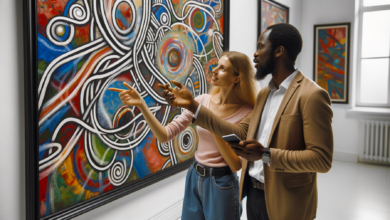The Attraction of Opposites: Myth or Reality?

The Attraction of Opposites: Myth or Reality?
Have you ever been drawn to someone strikingly different from yourself? Maybe they’re outgoing while you’re reserved, or they love action and adventure while you prefer quiet evenings at home. It’s a common belief that opposites attract, but is there truth to this idea, or is it merely a romantic notion that’s been perpetuated through movies and novels?
Understanding the Law of Attraction
The Law of Attraction suggests that like attracts like, meaning that people tend to be attracted to others who are similar to themselves. This is where things get a bit confusing. On one hand, you have the Law of Attraction that emphasizes the power of similarities, and on the other hand, there’s this widely held belief that opposites attract. So, which is it? Do we instinctively seek a mirror image of ourselves, or do we find ourselves captivated by our polar opposites?
Looking at the Evidence
Let’s consider what research says. Studies often highlight that long-term relationships tend to form between individuals who share common ground. Shared values, beliefs, and lifestyles can create a strong foundation for a relationship. Psychologists have found that couples who share similarities are more likely to enjoy long-term satisfaction.
Yet, there’s something intriguing about the allure of someone different from us. This attraction to opposites can be explained by the complementarity theory. It proposes that we are attracted to people who have strengths that we lack, as they can complement our own personalities and traits. This could help explain the initial spark between two seemingly mismatched personalities. But does this spark have what it takes to keep the fire burning over time?
Cultural and Social Perspectives
Think about the famous tale of Romeo and Juliet. Their differences only fueled their passion, despite the tragic ending. Literature and media often explore the dynamic tension between opposites, suggesting that these relationships can be exceptionally passionate and dynamic.
However, the long-term reality of such unions might be less glamorous. Different social and cultural backgrounds can certainly add diversity to a relationship, but they may also present challenges. Couples may have to navigate disagreements about fundamental issues, such as parenting styles or financial management.
Is it Just a Phase?
Infatuation with someone different can be intoxicating, but it might be just that—a phase. The novelty of dating someone who shakes up your world can be alluring at first. Eventually, though, the novelty could wear off, and the differences that once seemed exciting might become sources of frustration.
Personality Traits and Complementary Needs
It’s no secret that we all come with a complex mix of traits and quirks. A shy and reserved individual might find an extroverted partner brings them out of their shell, providing a sense of balance. Conversely, an extrovert might appreciate the calming influence of a more introverted soul. In these scenarios, the saying “opposites attract” holds some weight, suggesting that the two individuals fulfill each other’s complementary needs.
- Introverts with extroverts
- Adventurous spirits with homebodies
- Spenders with savers
Opposite traits can indeed attract, but they need to be balanced by a degree of commonality. It’s usually not enough for a relationship to survive on differences alone.
Chemistry and Attraction
Despite similarities or differences, we can’t ignore the role of chemistry. Sometimes you click with someone and can’t exactly pinpoint why. It’s that undefinable “spark” that doesn’t always follow the rules of attraction we’ve established in our minds. This chemistry can prompt us to form connections with people who, on paper, might seem like a mismatch.
Compatibility: The Middle Ground?
Finding a middle ground between similarities and differences seems to be key for long-lasting relationships. Couples who strike a balance between shared values and complementary personalities tend to have richer, more fulfilling partnerships. It’s like a dance, with each person bringing their unique moves to the floor, creating a cohesive and harmonious performance.
Finishing Thoughts
So, do opposites really attract? It seems the answer is not simple—it’s not just about being opposites or the same. The attraction is a complex mix of compatibility, complementarity, and that unexplained chemistry that draws people together.
Perhaps the truth lies in appreciating differences within a framework of shared values and goals. An adventurous spirit might be thrilling, but without a shared vision for the future, it could lead to a dead-end. On the flip side, having everything in common might not be a recipe for passion, but it can be for stability and understanding.
The notion that opposites attract is both a myth and a reality. It’s a myth in the sense that lasting relationships are rarely built on differences alone. It’s a reality because those differences, when mixed with significant commonalities, add depth and dimension to a relationship.
Finding that balance is more art than science, requiring us to be open-minded and sometimes willing to go against conventional wisdom. By embracing both the similarities and differences, we can enjoy the beautiful dance of a well-rounded relationship.




